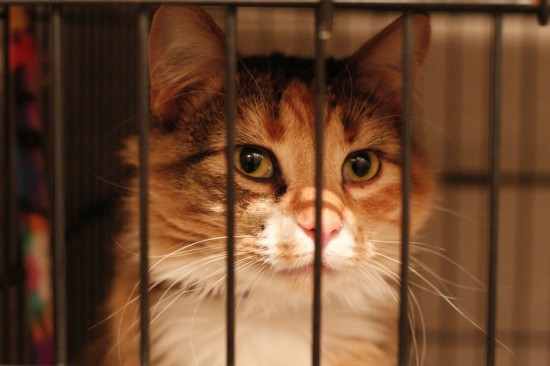
When your beloved pet gets sick, the whole household can be turned upside down. Unlike people, your dog or cat cannot let you know what hurts or what is wrong. But your veterinarian can help deduce the cause of the problem and prescribe the right medicine to get your pet up and moving around quickly.
Allergy
Yes, pets have allergies. And the symptoms can sometimes be worse than the allergy. For example, some dogs develop pain and severe itching as a result of their allergies. An allergy is actually an over-reaction or hypersensitivity of the immune system to a particular substance, which can include such allergens as pollens, flea saliva, etc. The symptoms usually include itching, but can also affect the eyes and the respiratory or digestive systems.
Dogs are prone to at least five common allergies:
1. Fleas
2.Inhalants
3.Food
4.Contact
5.Bacterial Hypersensitivity
One treatment is amitriptyline, which is a tricyclic antidepressant that can help control behavior problems in dogs and cats, but can also control some types of pain and severe itching. If your dog has a skin allergy, the veterinarian may prescribe Atopica, which is an oral form of cyclosporine that helps to control skin allergies. Another common treatment is diphenhydramine, which is the generic name of the brand-name drug Benadryl. This medication is given to treat an allergic reaction to drugs or an environmental allergen. While it is well-tolerated, you can expect this medication to make your pet sleepy. It is available over the counter in capsules, chewable tablets, an oral elixir and syrup formats.
Eye
When your dog or cat gets an eye infection, a common treatment is B.N.P. Triple Antibiotic Ophthalmic Ointment for Pets. It contains neomycin and polymyxin B sulfates and bacitracin zinc. This solution or ointment can treat surface bacterial infections of the eye – both in the cornea and in the conjunctiva. The veterinarian may also prescribe Gentamicin Sulfate Ophthalmic Ointment USP for either your dog or cat. It is commonly prescribed to treat conjunctival infections and infections on the cornea.
Ears
The ears on your dog or cat are one of the touchiest parts of their bodies. They are prone to topical infections, bacterial infections and fungus. If your pet’s ears experience any of these problems, the veterinarian may direct you to flush out their ears using DermaPet MalAcetic Otic flush, which is made with ketoconazole and hydrocortisone broad spectrum cleanser. You should shake the container well before administering the prescribed dosage into the ears.
If your cat, kittens, dog or puppies develop ear mites, one treatment of choice is Acarexx (ivermectin) Otic Suspension. Ivermectin, a topical solution, is an anti-parasite drug that can get rid of ear mites. It should not be used in kittens or puppies younger than 6 weeks old. And beware that some pets have developed an allergic reaction to this and similar products.
Heart/blood pressure/respiratory
Just like their owners, some dogs and cats can develop heart problems, elevated blood pressure and respiratory deficiencies. If your beloved pet has been diagnosed with heart problems, the veterinarian may prescribe Atenolol tablets to treat heart disease and lower its blood pressure. Atenolol, also used to treat humans, is a beta-blocker that slows and regulates the heart rate and causes the heart to work more efficiently. Unlike some medications, Atenolol will need to be taken for the rest of your pet’s life.
Another medicine often prescribed to humans, but used to treat dogs and cats, is Plavix. Plavix is an anti-platelet medicine and anticoagulant that keeps your pet’s blood from forming clots. It is often prescribed to prevent arterial thromboembolism, as well as systemic arterial embolism.
Hormone/endocrine
If your dog develops a thyroid disorder, the doctor may prescribe Canine Thyroid Chewable Tablets (levothyroxine sodium), which stimulate metabolism, growth, development and differentiation of tissues – just like the thyroid gland. Hypothyroidism usually occurs in older or middle-aged dogs. Cats can be prescribed levothryoxine for shorter periods of time to treat hyperthyroidism.
Be aware that long-term use can cause osteoporosis (bone loss) in your pet. It can also cause an interaction with other medications, including antidepressants, digoxin, epinephrine, estrogens, insulin, ketamine, norepinephrine and warfarin.
Urinary tract infections/kidneys
If your dog or cat has developed compromised kidneys, or suffers from frequent urinary tract infections, your veterinarian may prescribe Epakitin Powder, a nutritional supplement that supports renal function. Epakitin powder helps increase the amount of fluid in the colon, which softens the stool. It can also increase the amount of ammonia that is excreted in the stool. It is indicated in the treatment of constipation and hepatic encephalopathy. It should not be given to pets with diabetes or those animals that are dehydrated, pregnant or nursing. If you want your pets to live as long as possible, with the best possible quality of life, be sure you provide the best possible pet medications.
 Responsible Breeding - Some Common-sense Guidelines For Both Breeders And Puppy Buyers
Responsible Breed
Responsible Breeding - Some Common-sense Guidelines For Both Breeders And Puppy Buyers
Responsible Breed
 Using Silent Whistles With Your Dog
Using Silent Whis
Using Silent Whistles With Your Dog
Using Silent Whis
 Turtle Or Tortoise | What’s The Difference?
When you are walking in the woods and come across a turt
Turtle Or Tortoise | What’s The Difference?
When you are walking in the woods and come across a turt
 How To Create Wonderful Hideaways For Your Cat This Summer
How To Create Won
How To Create Wonderful Hideaways For Your Cat This Summer
How To Create Won
 Adopting An Older Cat
Adopting An Older
Adopting An Older Cat
Adopting An Older
Copyright © 2005-2016 Pet Information All Rights Reserved
Contact us: www162date@outlook.com